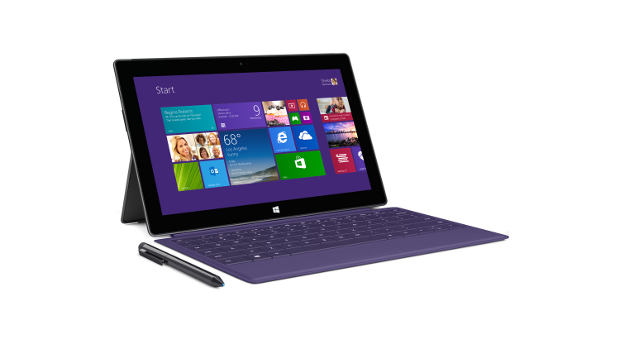 On the surface, you’d think that the tablet was a good subject to look at if you were trying to identify a potential growth area in 2014. Yes, we all know about how well Apple and Samsung have done but there are a whole host of other vendors getting in on the tablet act now. Companies like HP, Lenovo, Acer, ASUS, Toshiba and Microsoft. Plenty enough to be going on with if you were looking for people to comment on the subject of tablets as a growth area for channel partners in 2014. You’d think.
On the surface, you’d think that the tablet was a good subject to look at if you were trying to identify a potential growth area in 2014. Yes, we all know about how well Apple and Samsung have done but there are a whole host of other vendors getting in on the tablet act now. Companies like HP, Lenovo, Acer, ASUS, Toshiba and Microsoft. Plenty enough to be going on with if you were looking for people to comment on the subject of tablets as a growth area for channel partners in 2014. You’d think.
I definitely did. So how come so few vendors were actually interested in providing comment on the potential for tablets for channel partners in 2014? Is it because there really isn’t that much of an opportunity for them? Possibly. If so, I can’t help but wonder if some of the hesitancy around tablet adoption at a business level is down to the way in which vendors with significant investments in the Windows desktop and laptop ecosystem have been doing their best to slow down the adoption of tablets until an acceptable Windows model appears.
There’s no doubt that Android and iOS-based tablets have enjoyed huge growth at a consumer level and have made some inroads into the business world but it’s also clear many vendors and customers in the Windows ecosystem have been hanging on because they are far more comfortable with the devil they know than with something completely disruptive.
It’s akin to the inertia many people feel when it comes to changing electricity or telephony/broadband supplier. Some are tempted to switch but many more hang on waiting for the price to come down from their existing provider. When you consider that changing electricity or telephony/broadband supplier is far less disruptive than having to accommodate iOS or Android in a Windows ecosystem and network, it’s understandable that businesses are reluctant to make any sudden changes.
In some cases, their employees are trying to make the choice for them by bringing in iPads or Android-based tablets but many enterprises are already fighting back as evidenced by the transformation of BYOD to COPE (corporate owned, personally enabled) — or the alternative CYOD (choose your own device) which should more accurately be called the BOD (buy our device) policy — that returns control of devices like tablets to the employer and the IT department.
This trend dovetails neatly with the arrival of Windows-based tablets so you could reasonably expect Windows-based vendors to be making a lot of noise about the fortuitous coincidence of being able to deliver products that employers would be happier to provide to their employees. But they don’t seem to be. Not really. Why not?
I think they’re still trying to work out what the best products are for business users. I suspect if it was down to most of them, they would be selling ultraportables and ultrabooks instead which probably explains why there are quite a few of them selling ‘hybrid’ tablets. While it might appear to make sense to add a keyboard to a tablet, it doesn’t really. Once you add a keyboard to a tablet, you’re essentially admitting you don’t know what a tablet is for by trying to turn it into a fairly expensive and underpowered laptop. The millions of people who bought tablets before the Windows-based vendors got involved didn’t worry whether they had an attachable keyboard or not. And guess what: they found they could get a lot of use out of them without a keyboard.
But until the vendors (and their corporate customers) can begin to properly comprehend the role tablets can play within a business environment without turning them into laptops, I think it’s fair to say a lot of them won’t appreciate the potential for tablets as a growth area in 2014.







Subscribers 0
Fans 0
Followers 0
Followers